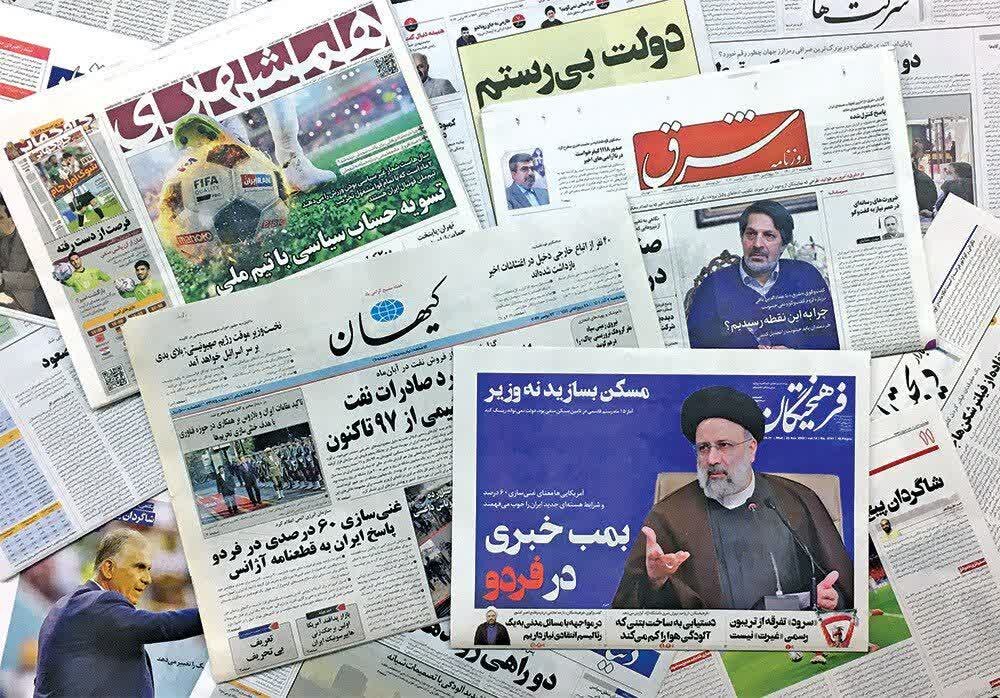Are Tehran-Delhi ties moving towards divergence?

Farhikhtegan writes: Relations between Iran and India experienced a controversial week. Iran’s Foreign Minister Hossein Amir Abdollahian called off a visit to India apparently because a video promoting a government-backed geopolitics conference featured a brief clip of protesting Iranian women along with images of President Raisi.
The trip was supposed to take place at the beginning of March. In addition to Amir Abdollahian, foreign ministers of some other countries, including the G20 countries, were also invited to the forum.
New Delhi's withdrawal from the peace pipeline (gas) project, suspending oil purchase from Iran, New Delhi's delay in developing and completing Chabahar port (despite the fact that the U.S. State Department has said it is exempting Iran's big port project in Chabahar from sanctions) and finally New Delhi's close political and economic cooperation with countries hostile to Iran (like Israel) can be cited as some of the changes that have occurred in the interactions between the two countries.
Etemad: Iran and Islamic Emirate of Taliban
On Saturday, the Afghan embassy in Tehran was handed over to the Taliban, which means recognition of the Taliban's Islamic Emirate, the Etemad newspaper said in a commentary.
According to newspaper, the Islamic Republic of Iran is the sixth country to officially hand over the Afghan embassy to the Taliban.
Nowzar Shafiei, a political analyst, says: "This means that Iran actually considers the Taliban as the official representative of the Afghanistan."
Abdul Mohammad Taheri, Iran's former cultural attaché in Afghanistan, also says: "Iran's Foreign Ministry wants to take advantage of the U.S. and European vacuum in Afghanistan."
Taheri believes that the introduction of the new ambassador of Iran to Afghanistan and his acceptance by the Taliban made Iran feel obliged to do the same.
"The former ambassador of Iran in Afghanistan caused the relationship between Tehran and the Taliban to become a bit strained, and with the introduction of the new head of the Iranian embassy in Kabul, relations improved. Most likely, the Taliban expected that the Islamic Republic would also respond to their request," Taheri opines.
Arman-e-Melli: Negotiation is the only solution
That the U.S. declares that the JCPOA is not on its agenda shows the high degree of tension between Iran and the West, Arman-e-Melli comments.
On the other hand, the West also sends positive signals that show its determination to revive the JCPOA.
The upcoming visit of Oman's Sultan to Iran can have two messages: a revival of the nuclear agreement or warning and negative message of the U.S. to Iran. But the reality is that there is no other way to waive sanctions other than diplomacy.
If the JCPOA is not revived, the crisis in the region will increase and it can lead to more costs for the West, which is heavily involved in the Ukraine crisis. A new crisis in the Middle East will greatly increase insecurity and instability in the region which will not be good for the U.S. allies in the Persian Gulf.
Anyway, the countries in the southern shores of the Persian Gulf live in glass palaces, and any tension or crisis in the region can cause crisis and turmoil in these countries.
Khorasan: Grossi’s imminent travel to Iran
Finally, after several weeks, it was announced on Tuesday that the Islamic Republic had agreed to the visit of Rafael Grossi, the IAEA director general, to Tehran, Khorasan writes.
Earlier, some sources familiar with the matter said that Iran had set conditions for Grossi’s visit to Tehran. It seems that Grossi has accepted the terms and the visit will take place.
On the other hand, before his trip to Geneva, Iran's Foreign Minister Amir Abdollahian announced in an interview with Al-Alam TV that the Iraqi Foreign Minister had brought a message from the U.S. to Iran
These statements, along with Grossi's trip to Tehran, can resolve the most important obstacle to restore the 2015 nuclear agreement, namely the IAEA's claims about three suspect sites.
Siasat Rooz: Human rights violators and claimants
The UN Human Rights Council meeting has started and one of the points about the meeting is accusations by Western media and officials against Iran, Siasat Rooz says.
At the same time as the Western media outlets, including foreign-backed Farsi TV channels in London, were propagandizing against Iran under the pretext of human rights, the Western politicians were also supporting these media with so-called humanitarian remarks.
For example, James Cleverly, the British Foreign Minister, claimed at the UN Human Rights Council meeting that the killing of Mahsa Amini was a terrible reminder of the Islamic Republic's indifference to the lives of its citizens.
He said that the voice of Iranians should be heard continuously.
These propagandas are against Iran while these fake supporters of the Iranian people have committed countless crimes against Iranians with their sanctions, including ban on import of medicine.
Leave a Comment